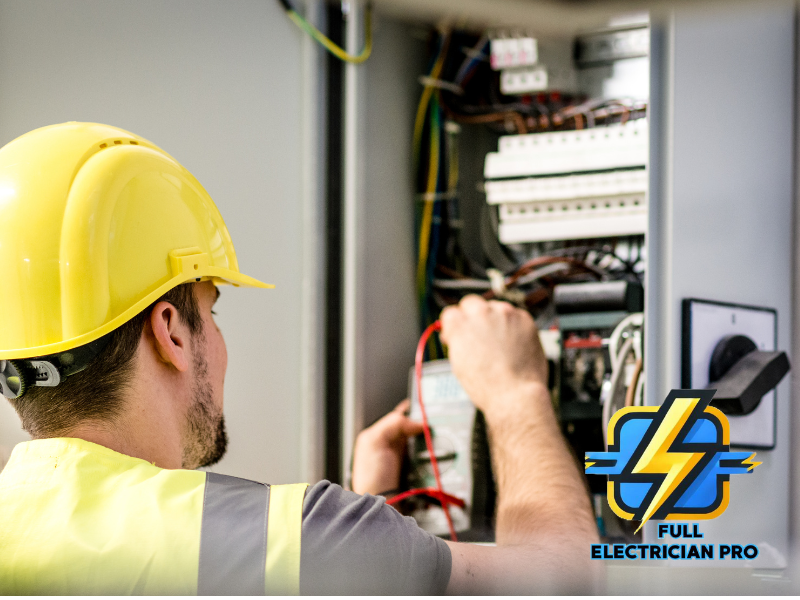
Common and Uncommon Electrical Panel Issues: Preventive and Emergency Repairs
Electrical panels, also known as breaker boxes, serve as the control center for the electrical systems in homes and businesses. They distribute electricity to different circuits and protect your property from electrical overloads. Over time, electrical panels can experience wear and tear, requiring repairs or upgrades. Understanding common and uncommon electrical panel issues, as well as the importance of both preventive and emergency repairs, is key to ensuring electrical safety and reliability.
Common Electrical Panel Issues
1. Tripping Breakers: One of the most frequent electrical panel issues is breakers that trip frequently. This is often caused by overloaded circuits, faulty appliances, or outdated panels that can't handle the load of modern electrical devices.
2. Flickering Lights: Another common sign of an electrical panel issue is flickering lights, especially when multiple appliances are running at the same time. This indicates that your panel may not be distributing power evenly across circuits.
3. Rust or Corrosion: If you notice rust or corrosion on the panel, it’s a clear sign that moisture has entered the system. This can be hazardous and may lead to electrical shorts or fires if not addressed immediately.
4. Breaker Won’t Reset: Sometimes, breakers that trip won’t reset, leaving part of your home or business without power. This could indicate a more serious problem with the electrical panel itself or with the wiring connected to it.
5. Hot Panel or Breakers: If the panel or any of the breakers feel warm or hot to the touch, it may signal an overload or faulty breaker. This is a serious issue that requires immediate attention from a professional electrician.
Uncommon or Complex Electrical Panel Issues
1. Arcing Inside the Panel: Arcing occurs when electrical current jumps between connections or wires. It produces excessive heat and can lead to electrical fires. This is an uncommon but dangerous issue that needs immediate repair by a certified electrician.
2. Undersized Panels: Some older homes or businesses have undersized panels that cannot handle the electrical demands of today’s modern appliances and devices. This can lead to frequent tripping, brownouts, or the inability to add new circuits for additional electrical loads.
3. Faulty Neutral Wires: Problems with the neutral wire can cause imbalances in the electrical system, leading to flickering lights, voltage surges, or even potential shocks. These issues are more complex and often require rewiring or rebalancing circuits.
4. Melted or Burnt Wires: While rare, melted or burnt wires in the panel can result from extreme overloading or a previous electrical surge. This poses a significant fire risk and requires immediate professional intervention.
5. Improperly Installed Panels: Panels that are installed incorrectly, or panels that don’t meet current electrical code, can lead to various issues like improper grounding, unbalanced circuits, or inadequate protection against overloads.
Preventive Repairs for Electrical Panels
1. Routine Panel Inspections: A licensed electrician should inspect your electrical panel regularly to ensure it's in good condition. Preventive maintenance includes tightening loose connections, checking for signs of wear, and testing breakers to ensure they're functioning correctly.
2. Panel Upgrades: For older homes or growing businesses, upgrading to a larger, more modern panel can prevent issues like overloaded circuits and reduce the risk of electrical fires. A panel upgrade is often necessary if you're adding new appliances or expanding your building's electrical systems.
3. Surge Protection: Installing whole-home or business surge protection at the panel can safeguard your property from power surges caused by lightning strikes, utility issues, or large appliances. This preventive measure helps protect your devices and electrical systems from damage.
4. Load Balancing: Preventive load balancing ensures that the electrical load is distributed evenly across circuits, reducing the chances of overloads or breaker trips. This is especially useful for homes or businesses that have added new electrical devices over time.
Emergency Electrical Panel Repairs
1. Breaker Failure: A breaker that fails to trip during an overload or short circuit poses an immediate fire hazard. Emergency repairs are required to replace faulty breakers and restore the safety of your electrical system.
2. Electrical Fires: If you notice burning smells, smoke, or scorch marks near your panel, it’s critical to shut off power immediately and contact an electrician. These are clear signs of an electrical fire risk.
3. Total Power Loss: In cases of total power loss, especially during storms or after an electrical surge, the panel may need emergency repairs to restore power. In some cases, this involves replacing damaged breakers or rewiring circuits.
4. Overheating Panel: If your electrical panel is overheating, it can lead to electrical fires and damage to the system. This requires immediate intervention from an electrician to diagnose and fix the issue.
In conclusion, electrical panels are the backbone of your home's or business's electrical system. Keeping them in good working order is essential for safety and efficiency. Preventive repairs can help avoid costly emergencies, while emergency repairs are necessary when unexpected issues arise. Always rely on certified electricians to handle any repairs or upgrades to your electrical panel.